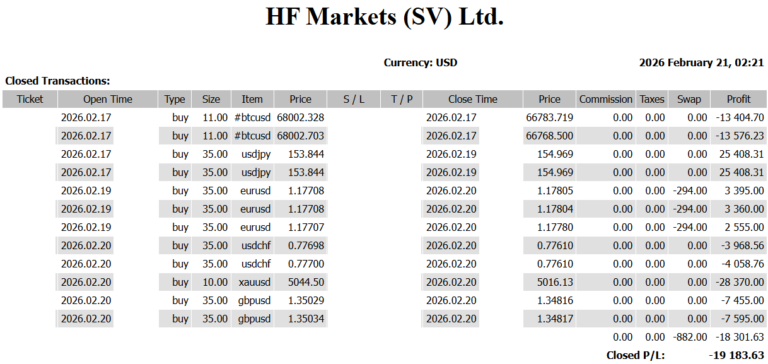The trades from June 10th to June 14th resulted in a total loss of -99,620 USD.
It was a challenging week, as significant fluctuations in the USD led to substantial losses. The decrease in the US PPI prompted me to take a large USD short position with buys in gold and AUD/USD, but the market reversed, leading to stop-outs. Further attempts to capitalize on movements following the BoJ monetary policy meeting also resulted in stop-outs, wiping out nearly all gains from the first half of June.
Large losses are an inevitable part of trading, but I will continue to trade calmly and persistently.
Future Focus:
- BoJ’s Bond Purchase Reduction: BoJ Governor Kazuo Ueda mentioned the decision to reduce long-term government bond purchases, aiming for a substantial scale. While specific details will be determined by consulting with market participants, Ueda did not rule out the possibility of a rate hike in the next meeting, depending on economic conditions.Source: Reuters
Despite initial yen depreciation following the bond purchase reduction announcement, Ueda’s press conference led to yen appreciation. While this temporarily halted the rise to 160 yen, it remains uncertain whether the yen will continue to weaken. A range-bound trend is expected.
- FOMC Interest Rate Decision: The FOMC projected only one rate cut in 2024, down from three in previous forecasts, emphasizing maintaining high policy rates to curb inflation. The rate was held steady at 5.25-5.5% for the seventh consecutive meeting. The forecast suggests four rate cuts in 2025.Source: Bloomberg
With only one rate cut expected this year, there might be short-term USD buying. However, considering the declining US CPI and the forecast for multiple cuts next year, a USD selling trend is anticipated in the medium to long term. USD trading will remain flexible, but a shift to USD selling is expected after the summer.
Key Currency Points:
USD: May retail sales are expected to improve by 0.3% MoM, which could drive USD buying if the forecast holds.
EUR: Concerns over the French lower house election weigh on EUR. Attention is on June’s ZEW Economic Sentiment Index and Eurozone PMI, but political instability may cap gains.
JPY: Focus on Japan’s May core CPI and the “Basic Policy” release on the 21st. Measures to curb yen depreciation are expected, with potential “repatriation tax cuts.” Without specific measures, yen selling pressure may increase, but intervention concerns arise if USD/JPY exceeds 158.
GBP: The GBP remains firm, with attention on the upcoming BOE meeting. The policy rate is expected to remain unchanged, but post-election inflation control and rate cut debates are crucial. May’s CPI results are also significant.
CAD: Attention on BOC’s July meeting and potential further rate cuts. Rising unemployment and wage growth may reduce rate cut expectations. Key data include May housing starts and April retail sales.
AUD: AUD is expected to stay strong, supported by falling US rates, yen selling, and high Australian inflation. The RBA meeting on the 17-18th is crucial, with potential rate hikes following April’s CPI rise.
NZD: NZD is on an uptrend, with the Q1 current account and GDP results next week potentially pushing it higher.
P.S.
The G7 summit has been focused on sanctioning Russia and supporting Ukraine. However, despite trade restrictions with the West, Russia continues to grow, supported by China and neutral Global South countries. These countries maintain trade with Russia for economic and geopolitical reasons, with significant economic contributions from nations like India and South Africa.
In 1990, advanced economies held an 80% share of the global economy (nominal GDP), with developing countries at 20%. By 2020, advanced economies’ share had dropped to 60%, while the Global South’s share increased to 40%, continuing to expand.
Investing in and maintaining good relations with Global South countries seems increasingly beneficial over simply adhering to the Western bloc.
Have a great weekend! 😊


